commentary Commentary
Commentary: Will Hong Kong call for Beijing’s back-up to quell protests?
Law and order in Hong Kong have come under attack after a dramatic turn of events this week, as masked men in white attacked protesters, says China commentator Tom McGregor.
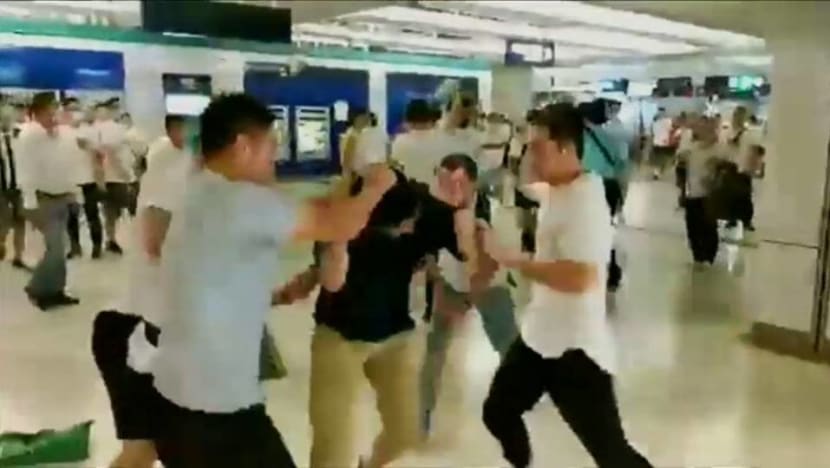
People being attacked on Sunday (Jul 21) at a Hong Kong train station by suspected triad members. (Screengrab: The Stand News/Reuters)
BEIJING: Hong Kong is struggling under the weight of persistent political turmoil, as street protests have become the new normal for the city.
Tear gas, rubber bullets and increasingly more violent confrontations between protesters and police continue to engulf districts for days at any one time, after the aggressive storming of the Legislative Council Building earlier this month.
Still, an even more dramatic turn of events unfolded this week, as masked men uniformly dressed in white t-shirts descended upon protesters and unleashed violence, sparking a firestorm of outrage.
Rumours are afoot that the perpetrators are hired triad members who intended to use fear to deter Hong Kongers from joining these protests.
Their operations appeared organised, well-planned and timed, and we are unlikely to find out who had arranged for their vicious assault, but one thing is clear - such gangster actions will surely backfire.
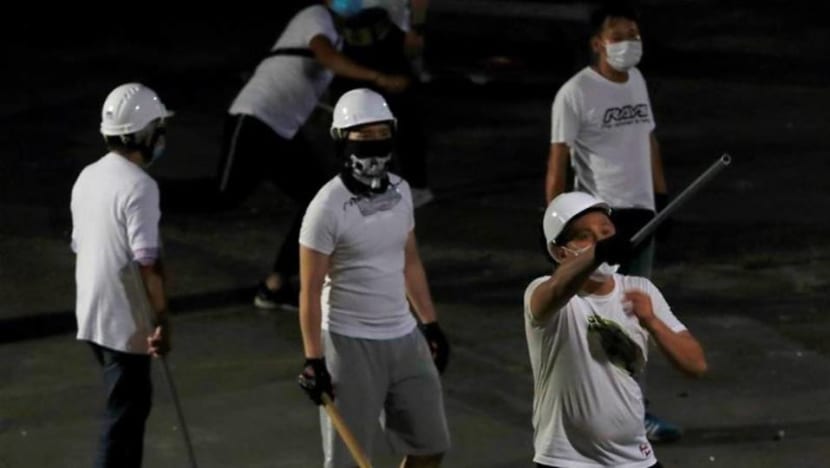
READ: Infernal affairs - How triads embraced communist China
The likely scenario is that protesters will not let up. Hong Kong is bracing itself for what could be a seventh consecutive week of political protests.
Questions whether Hong Kong authorities can deal with the situation remain. Some observers have asked whether Chief Executive Carrie Lam might call for back-up from Beijing.
WILL BEIJING RESPOND TO THE HONG KONG PROTESTS?
Having read the tea leaves and sensing heightened sensitivities over the People’s Liberation Army's (PLA) role in Hong Kong since the extradition bill sparked demonstrations, the Chinese government had presciently signalled a few weeks ago that it intends to abide by the Basic Law’s principle of non-interference in the city’s affairs and has no intention of deploying PLA troops, including those based at the city’s garrison, to quell the protests.
READ: Behind Hong Kong’s extradition bill protests – a looming divide, growing pessimism about the future, a commentary
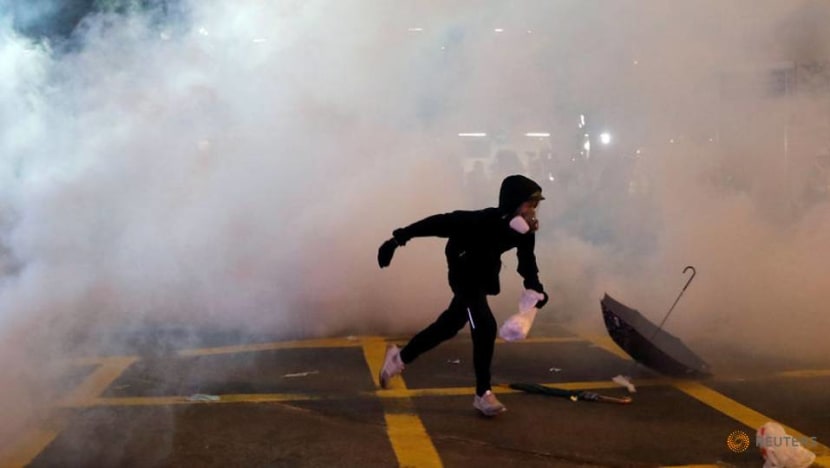
In early July, the Hong Kong and Macao Affairs Office, the central government's liaison office and the foreign ministry issued public statements reiterating that public security matters are handled by local police in Hong Kong under the Basic Law, the city’s mini-constitution.
China understands that the world is watching developments in Hong Kong closely. While many observers understand that China has a vested interest in stabilising the situation in Hong Kong, more would agree PLA involvement will be condemned immediately.
British foreign secretary Jeremy Hunt had earlier highlighted he does not rule out sanctions on China should it breach commitments over rights in Hong Kong stipulated in the handover agreement.
"China could stop them if they wanted", US President Donald Trump said of the protests during a press conference at the White House when meeting Pakistan Prime Minister Imran Khan.
I'm not involved in it very much but I think President Xi of China has acted responsibly, very responsibly.
READ: The noose around Hong Kong is tightening, a commentary
Indeed. President Xi has calculated China must act cautiously towards Hong Kong, since Beijing would gain very little by interfering with the responsibilities of Hong Kong’s Chief Executive Carrie Lam and the city’s Legislative Council.
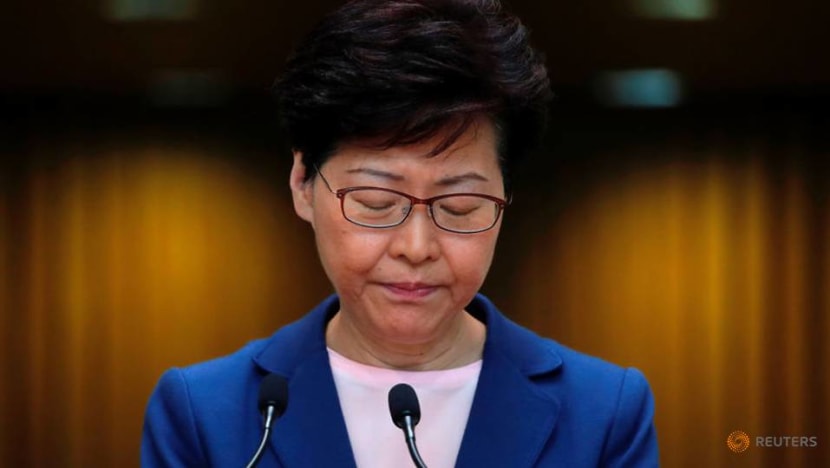
READ: Carrie Lam is playing a high-risk game with Hong Kong protests, a commentary
It is in no one’s interests to see a repeat of Tiananmen Square, not least China’s.
HOW HAS HONG KONG BEEN IMPACTED?
The victims of the Hong Kong protests are arguably Hong Kongers themselves. While the outside world watches with great sympathy over the city’s woes, concerns over safety, political stability and the rule of law are growing.
There have been more anecdotal accounts of capital flight as private investors move their assets out of Hong Kong, though the situation has not passed a tipping point where businesses relocate functions to other markets.
Visitors, travellers and shoppers, particularly those from the mainland, are staying away, with knock-on effects on Hong Kong’s tourism and retail sectors. Already, street demonstrations have disrupted consumer businesses and forced some shops to shutter.
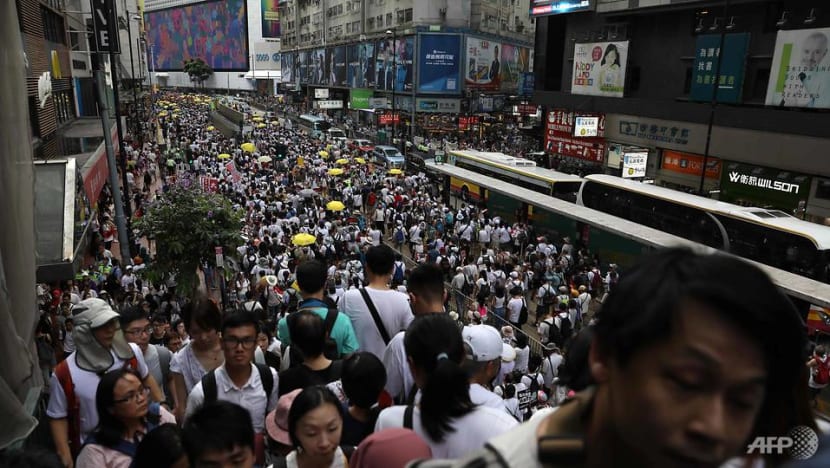
To be sure, Hong Kong’s diminishing reputation as a financial hub will not be catastrophic for China.
Shanghai and Shenzhen’s growth as key stock exchanges and significant centres of financial activity can buffer China against these short-term uncertainties, and provide a longer-term hedge against Hong Kong’s wane.
Truth be told, mainland Chinese are also not feeling too roughed up over these events in Hong Kong, after the protests have spooked those watching and shone a light on the potential turmoil and inherent fragility of a One Country Two Systems arrangement.
READ: What lies ahead for Hong Kong, a city on edge
Many see the protesters as senseless lawbreakers who have defaced government institutions and beat up police officers, rather than the brave and innocent political activists they make themselves out to be.
WHAT IS THE ENDGAME FOR PROTESTS?
Against this backdrop of continued strife, it has become increasingly imperative for Hong Kongers to find it within themselves to bring an end to the chaos and come to terms with some very difficult questions.
Has the violence been justified? Have those who have resorted to violent tactics been brought to justice? And what are the protesters’ endgame?
All sides seem to have dug in their heels. But protesters have to come to terms with the consequences of their actions.
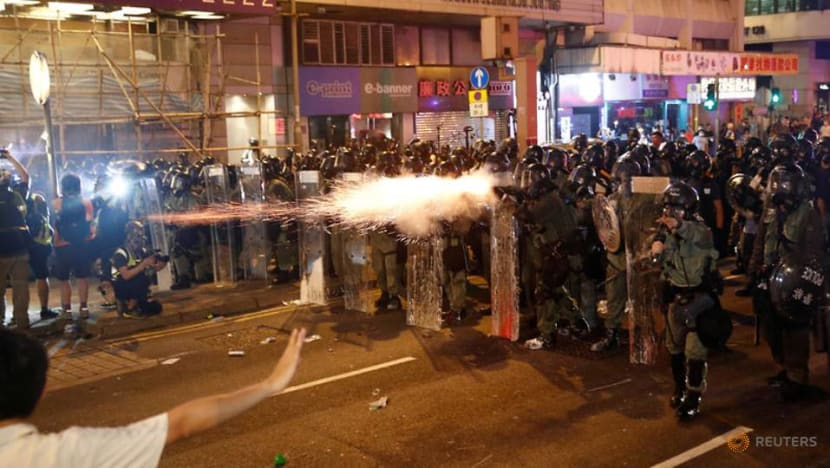
READ: Hong Kong protests may have crossed the point of no return, a commentary
Hong Kongers who do not agree with the protests must understand that vigilantism and taking actions into their own hands is not the answer.
Hong Kong authorities too must tackle decisively the troubling mob violence unleashed this week to restore normalcy, make arrests and figure out how these men have been able to carry out their attacks.
Protesters are forgetting that Hong Kong authorities have one trump card left to play. Carrie Lam could well declare a state of emergency and request for Beijing’s aid.
Chinese laws too allow for the National People’s Congress, the country’s parliament, to deploy garrison forces if it deems that the continued turmoil has mushroomed to levels beyond Hong Kong’s control and threatens national security.
For now, given raging concerns over Chinese action in Hong Kong, there is no appetite in Beijing and Hong Kong for such drastic action despite the unrelenting crisis.
Suggestions that PLA troops should restore order in Hong Kong are an insult to the Hong Kong police, who are expected to bear responsibilities of maintaining law and order in the city, and an indictment that local law enforcement efforts have failed in their duties.
READ: China says army can help maintain order in Hong Kong if requested
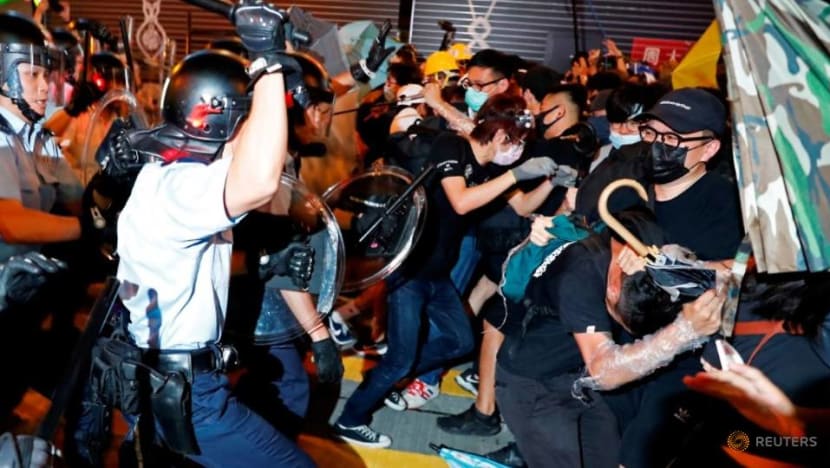
Beijing has also reaffirmed its support for the Hong Kong police in a series of public announcements and China expects them to make the city’s streets safe again.
The end outcome might be that Hong Kong remains mired in a summer of rage unless Carrie Lam’s administration takes swift, decisive action.
The ball is in Hong Kong authorities’ court.
Tom McGregor is a commentator on Asia-Pacific affairs based in Beijing.














